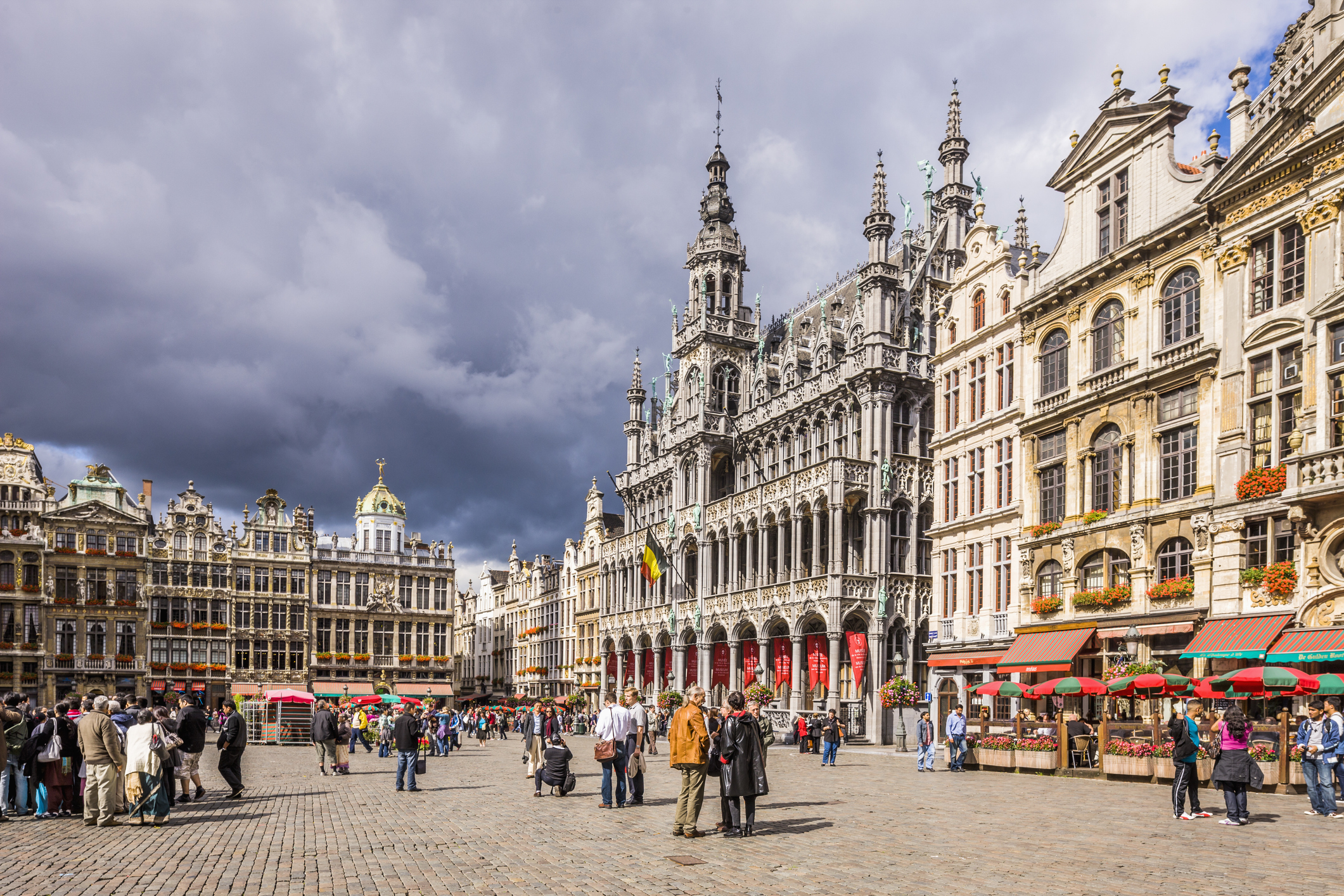How will business travel look in the future? Younger generations are likely to ask for a host of readily available modes of transport, more personal experiences and booking flows that are indistinguishable from leisure trips, all the while travelling without leaving a heavy carbon footprint. It sounds like a lot! And it will be fascinating to see how these forces interact. Will they compete with each other, or can you really have it all?
In this essay, travel tech firms Trainline Partner Solutions and Snowfall Travel explore the challenges and opportunities for corporate travel companies.
Unlocking the power of personalisation

Travel apps are now hugely popular. Global travel app downloads increased 13% last year to more than three billion, according to the State of Mobile 2024 report from Data.ai. Their use is particularly prevalent among younger generations. A survey by the digital association Bitkom found that nearly three-quarters (72%) of people aged 16-29 in Germany use travel apps to search for train services, compare ticket prices or find nearby car-sharing options.
The study confirmed a link between app usage and age: the younger the respondent, the more likely they are to use transport apps.
The travel industry therefore has a large and willing pool of customers, one that is likely to grow and grow as the first group of people fully immersed in technology from birth, Generation Alpha, start entering the workforce in the next two to three years. So how can business travel providers stand out from the crowd?
One way is with personalised content, delivered via push notifications and in-app messaging. Travel companies can complement younger travellers’ hyperconnected lifestyles with timely, relevant offerings, including deals, real-time journey and service updates. Companies that can truly connect with customers stand to win the ultimate prize: their loyalty.
The Personalization Pulse Check survey by Accenture found that 83% of consumers are willing to share their data in exchange for personalised recommendations and an even greater 91% are more likely to buy from brands who serve them with relevant offers. Their findings are backed up by Twilio, which found that more than half of consumers would become repeat customers after a personalised experience.
Clive Wratten, chief executive of the Business Travel Association, told us:
The evolving expectations of the upcoming generation of business travellers emphasise the importance of aligning work-related travel with personal values and preferences, seeking enriching experiences rather than mere transactions. To meet these demands effectively, the business travel industry must adapt by offering diverse and sustainable options, including global rail services beyond traditional regions like the UK and Europe. Embracing these changes is crucial for staying ahead of the evolving trends and satisfying the dynamic needs of this new cohort of business travellers.
At the end of 2023, several travel companies unveiled end-of-year, Spotify Wrapped-style usage summaries. SNCF Connect’s Ma Rétrainspective featured unique data telling their customers the equivalent number of marathons they had travelled by train, while Trainline’s Year in Trains contained quirky comparisons about the number of washing machine spins saved by choosing the train over more polluting modes of transport.
Smoothing over the tracks
All travellers want their journeys to be as easy (or “frictionless”) as possible. This expectation is only going to increase with technological advancements.
One popular way of making journeys smoother is with digital tickets. Travellers save them on their phones and avoid any queues for paper ticket collection. Trainline research has shown that 97% of travellers who used digital tickets were left feeling either satisfied or very satisfied. Of those, 94% said they would never use anything else.
Tap in, tap out technology lets passengers avoid the booking phase entirely. London has an integrated transport network that is the envy of cities around the world, with a vast array of trains, tubes and buses (and in some areas, trams) all accessible by a tap of your debit card. Following suit is the UK’s third largest city, Manchester, which will introduce Pay As You Go (PAYG) public transport by 2030. And Marseille is rolling out PAYG technology thanks to a private sector tie-up between tech giant Conduent Transportation, the bank Caisse d’Epargne and payments provider Visa.
Adam Appelby, the president of transportation solutions at Conduent, suggested the modernisation of travel networks is essential as cash falls out of favour. “Transportation authorities around the world are modernising their networks to meet the needs of passengers who are increasingly more reliant on technology-based solutions for everyday transactions,” he said.
PAYG travel is being advanced with the use of geolocation technologies, which can track a passenger’s journey at their departure and finish points and charge them accordingly. Geotargeting opens up new possibilities for travel tech firms. Trainline has partnered with the charity Missing People to create a geo-targeted missing person alert system, in a bid to bring missing individuals back to safety. The initiative works by displaying in the Trainline app images of people who have gone missing in the vicinity. Users are advised on the steps to take if they suspect they have seen a missing person, or have information on their whereabouts.

The convenience factor is also influencing the type of transport consumers choose to use. Recent studies suggest that next-gen travellers aren’t wedded to a specific way of getting around. Instead, they’re willing to use what’s easily accessible and readily available, and more likely to make journeys using two or more modes of transport. A 2023 Enterprise Rent-A-Car study found that almost nine in 10 (88%) of Gen Z travellers had taken a multimodal trip in the last 12 months. And the Global Business Travel Association reported that, on average, two-thirds (65%) of European business travellers said they used multiple modes of ground transportation during their last work trip.
Travel companies and tech disruptors are responding by offering more choice, reinventing themselves as all-in-one travel platforms (SuperApps) and striking partnerships with fellow providers to plug any holes in their offering.
While tap in, tap out systems aim to make transport more accessible, not everyone will understand how to navigate the modern railway station. Enter Hong Kong’s Mass Transit Railway Corporation. It used virtual reality games to help older people familiarise themselves with tapping smart cards at station entry gates as well as providing safety tips such as holding the handrail when using escalators. So perhaps it’s not only next-gen travellers with high tech expectations.
Blending business and leisure

Flexible work policies are in vogue. But rather than posing a problem, the trend is an opportunity for business travel providers.
Providing the level of flexibility that employees expect is now crucial to attracting and retaining top talent. The latest Randstad Workmonitor report found that 45% of 25–34 year-olds would not accept a job that didn’t offer schedule flexibility, and 41% said the same for jobs without remote working options. Having the flexibility to choose where you work is even more important to younger generations. Deloitte’s 2023 Gen Z and Millennial Survey found that 77% of Gen Zs who are currently in remote or hybrid roles would consider looking for a new job if their employer asked them to work on-site full time.
Similarly, the lines between leisure and business travel are becoming increasingly blurred. Business trips and working away from home are seen as an opportunity to bolt on some holiday time. An Expedia survey found that 66% of business trips taken by Gen Z workers were extended for leisure. And that was in 2017. The shift towards more flexible work policies continued during Covid, confirming blended travel as a new category of trip that is particularly popular among next-gen travellers and their propensity for seeking out unique experiences.
Snowfall’s Junction platform is tackling this issue by providing technology that enables travellers to incorporate leisure elements into their business trips, while giving corporates and agencies the ability to reconcile these itineraries effortlessly.
The ability to give employees the flexibility they’re looking for, plus the added benefit of corporate or agency-negotiated rates, while driving additional volume through your travel programme sounds like a win-win. But the challenge for businesses then becomes how to support this, both from a financial and duty of care perspective, and has been one of the main reasons why companies have been reluctant to go all in on blended travel.
These blurred lines have affected traveller expectations in other areas, too. The consumerisation of business travel has created an expectation of a leisure-quality booking experience. After all, why shouldn’t the technology we use to book our work trips be as simple and easy to use as the platforms we use to book our holidays? In fact, BTN Europe surveyed corporate travel buyers and 65% said user-friendliness was the top reason for choosing their company’s booking tool.
Sammit Khandeparkar, head of global travel at the London Stock Exchange, told us:
“As the leader of a global travel program, with a significant focus on Europe, I am constantly listening to the evolving needs of my travellers. They require a sophisticated, agnostic content platform that seamlessly integrates train bookings within Europe through our Online Booking Tool (OBT). One tech stack.
“Our priority is to enhance the ease of booking and payment processes while ensuring sustainability remains at the forefront of our initiatives. This includes optimising richer, broader rail content through a consumer grade user experience alongside flight searches in both the EU and Americas, reflecting our commitment to providing comprehensive travel solutions underscored with sustainability in mind.”
Greener travel desires

The climate emergency is one of the most significant global challenges and travellers are looking at ways to mitigate their impact on the environment. And while nearly three-quarters of travellers want travel companies to provide more sustainable options, Gen Z and Alpha are proving themselves to be the most environmentally and socially-conscious generations to date. And they’re not afraid to seek out more eco-friendly transport alternatives.
Deloitte’s 2023 Gen Z and Millennial Survey found that 42% of Gen Z have changed or plan to change their job or industry due to climate concerns and 50% are pushing their employer to drive change on environmental issues.
Their desire for sustainability puts the emphasis on businesses to make more environmentally-friendly options a core part of their travel programmes — not just to mitigate leakage, but to position themselves as the employers of choice for the next-gen workforce.
A green way to travel that is enjoying a boom in popularity is sleeper trains. Trenitalia’s chief executive Luigi Corradi said night trains are strategic for redefining mobility in terms of sustainability, intermodality and competitiveness after the operator saw a 25% increase in night train bookings on 2022 levels. For companies looking to trim costs of work trips, sleepers could be a novel option as they combine travel and accommodation in one.
Trains look well-positioned to benefit over the coming years. For its Ground Transportation in Europe 2023 study, the Global Business Travel Association (GBTA) asked travel managers how their company’s approach to ground transportation has changed the most compared to pre-pandemic before the (2019). Nearly two-fifths (38%) said they are more focused on sustainability and eco-friendly vehicles.
This reflects the desires of their workforce. The GBTA’s study found that business travellers’ top priority is comfort, followed by cost containment/savings and sustainability. The result is that half (50%) of European travel managers said their firm’s spending on trains (49%) has increased.
Today, two-wheeled electric vehicles are found in more than half of travel policies. GBTA heard that eScooters were included in 58% of companies’ programmes compared to 42% in 2020, and eBikes are in 57% compared to 44% in three years ago. At the same time, limos and chauffeured transport is decreasing, from being “sometimes” allowed in 65% of travel policies in 2019 to only 44% today. And spending on rental cars (29%), traditional taxis (29%) and private hire vehicles (25%) have all fallen on 2019 levels, cementing the shift towards more sustainable options.
The rail industry is leveraging sustainability as a selling point. Advocacy campaigns such as the collective movement, I Came By Train, are encouraging modal shift to rail for the sake of the planet, asking travellers to take action by pledging to swap a single car journey for a trip by train.
Next-gen travellers’ desire for sustainability, however, could be tested by the convenience of less environmentally-friendly travel options. A study by Trainline identified a band of ‘rail warriors’, with seven in ten (70%) business travellers saying they were willing to travel by train even if it takes significantly longer than flying. But will Gen Alpha stay true to their word on sustainable travel if flying gets them from A to B faster, or when they can hail a taxi with such ease?
Stepping into the metaverse
A large, looming question is the potentially transformative impact of the metaverse on travel. Gen Z and Alpha are the ones who grew up with tablets, smartphones and smart devices as integral parts of their lives. The content they view and engage with is more visual and interactive than ever before, including augmented reality and virtual reality experiences, known collectively as extended reality. Yes, this may mean travel experiences without the passenger travelling in the physical sense at all.
Estimates by McKinsey & Company suggest the metaverse could be worth more than $20 billion to the travel industry by 2030. Spectacularly, they write: “Imagine a future where your travel choices have no geographic constraints. Where you can join your friends in the front row of a concert …. Later you’ll do some shopping at the virtual souk and take a digital Nile cruise, before teleporting back home in an instant.”
It’s easy to imagine the implications for business travel. The metaverse could bridge the gap between a Zoom call and face-to-face meeting. No-commute conferences could be held in beautiful locations with inspiring scenery. The best of both worlds?️
Getting ready for Gen Alpha
Gen Alpha are expected to be the most entrepreneurial generation to date, with more than three-quarters aspiring to have their own businesses, and technology playing a key role in how they generate income. And with coding becoming a core part of many schools’ curriculums, code-savvy graduates may decide that if technology doesn’t work the way they want it to, they’ll go out and build something that does.
Their behaviours are already shaping technological innovation and business travel firms looking to engage these consumers cannot afford to wait another three years for them to enter the workforce. These tech-savvy travellers, who expect seamless, responsive technology that enhances how they go about their lives, are compelling providers to adopt an ever-greater digital focus.

